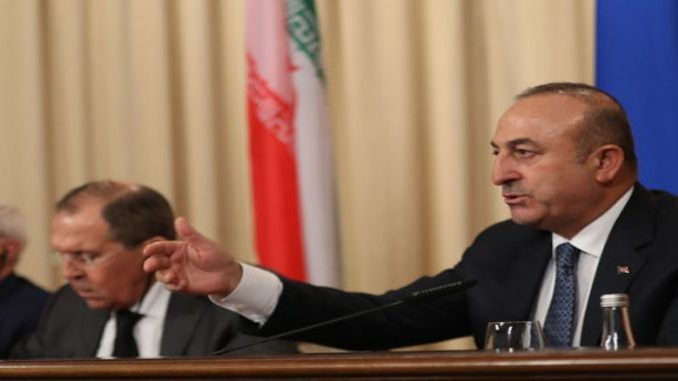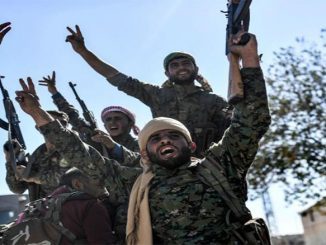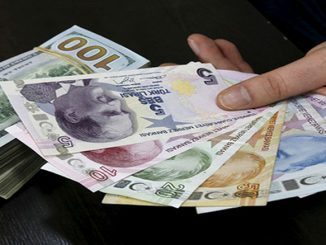
The Syria peace talks, organized by Russia and Tukey, are set to start tomorrow after both the government and opposition delegations have arrives in Astana, in a test for Russia’s ability to broker the power struggle in the middle east and find a solution for the Syrian crisis.
Many ceasefire agreements accompanied by peace talks meetings were organized to help find a solution to the crisis, but Assad regime and Iranian forces breached every ceasefire and hindered every peace talks meeting without any pressure moves or real steps from the western powers.
The recent months especially witnessed numerous meetings between the US and Russian foreign ministers to find a solution to the Syria crisis, end the violence and start new peace talks but they led to nothing.
In the end, Russia said it has a new plan for Syria peace talks which can be achieved with powers that have a real effect on the Syrian ground.
Russia and Iran both back Assad, but Turkey, a NATO member, has long made clear it would prefer him to step down. Ankara has however sought to fix its relation with Russia in recent months after the coup attempt as the west abandoned its relations with Turkey.
The three countries said they were ready to help broker a Syria peace deal after the three countries held talks in Moscow on Tuesday and adopted a new declaration.
This new relation included Turkey’s moderation of its rhetoric on Assad, changing the goal of its military operation in Syria, decreasing its support for the armed Syrian opposition, and playing a major role in bringing the Syrian opposition to one table with Assad through the newly made agreement as the new agreement shows.
Russian President Vladimir Putin said then that that Syrian opposition groups and the Syrian government had signed a number of documents including a ceasefire deal that will be guaranteed by Turkey and Russia.
The documents include a ceasefire agreement between the Syrian government and the opposition, measures to monitor the ceasefire deal and a statement on the readiness to start peace talks to settle the Syrian crisis, Putin said.
These peace talks were scheduled to start on Monday 23 January in the Kazakh capital, Astana.
Can Russia force its role as power broker in Syria?
Russia believes its talks process can be more productive than previous efforts led by the UN, partly because the military balance has changed and partly because the talks are directly between the Syrian government and fighters, rather than with political leaders representing the opposition but often living outside Syria.
Leaders of the Syrian opposition delegation, representing as many as 12 factions, claimed on the eve of the Astana talks that Moscow genuinely wanted to move to a neutral stance but was being held back by the Iranian and the Syrian governments.
The Syrian opposition says the government and Iranian-backed militias are continuing military offensives in several areas in Syria, including in Wadi Barada near the capital, regardless of the ceasefire. But the opposition factions have few cards at their disposal and may have to choose between agreeing to separate from terrorist groups, such as the al-Qaida linked Jabhat Fateh al-Sham (JFS, formerly the Nusra Front), or face their destruction.
Some of the worst fighting in recent days has been between opposition groups in Idlib – one of the last rebel strongholds in Syria.
Mohammed Alloush, the leader of the opposition delegation, said the failure of Moscow to put pressure on Iran and the Syrian government to end what the opposition says are widespread violations of the Turkish-Russian brokered ceasefire would be a blow to its influence in Syria.
“It’s a real test of the power of Russia and its influence over the regime and Iran as a guarantor of the deal so, if it fails in this role, there will follow bigger failures,” Alloush said in the Kazakh capital. “Russia wants to move from a direct party in the fighting to a guarantor and neutral one and this point is being obstructed by the Syrian regime that wants it [the ceasefire] to fail and Iran that is fighting this with its sectarian militias in Syria.”
Opposition sources said they were willing to hold face-to-face or indirect talks over ceasefire violations and humanitarian access.
Moscow believes the diplomatic backdrop of the Astana talks is more favourable than last spring’s abortive talks in Geneva, partly because the opposition has been weakened and divided by the Aleppo defeat. It also believes Washington under Donald Trump is interested primarily in defeating Isis, rather than ousting Assad from power.
With the talks formally due to end at lunchtime on Tuesday any agreement is unlikely to spread beyond the terms for deepening the ceasefire and providing humanitarian access, as well as agreeing on broad principles for a future Syria.
But the talks may reveal the extent to which tensions between Tehran and Moscow over the future of Syria can be contained. So far, there has been silence, for example, over whether the Iranian-backed Hezbollah should be forced to quit Syria.
Russia and Iran are both seeking to exploit the military and political victory with commercial and military deals with Assad.
The Syrian crisis began as a peaceful demonstration against the injustice in Syria. Assad regime used to fire power and violence against the civilians and led to armed resistance. 450.000 Syrians lost their lives in the past five years according to UN estimates, and more than 12 million have lost their homes.



